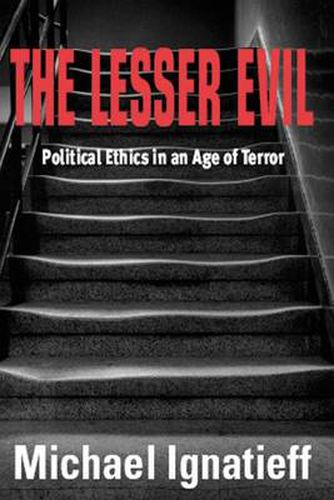Readings Newsletter
Become a Readings Member to make your shopping experience even easier.
Sign in or sign up for free!
You’re not far away from qualifying for FREE standard shipping within Australia
You’ve qualified for FREE standard shipping within Australia
The cart is loading…






In the age of terrorism, the temptations of ruthlessness can be overwhelming. Yet a violent response to violence arguably makes us morally indistinguishable from our enemies. There is perhaps no greater political challenge today than trying to win the war against terror without losing our democratic souls. Michael Ignatieff confronts this challenge head-on, with the combination of hard-headed idealism, historical sensitivity and political judgement that has made him one of the most influential voices in international affairs today. Ignatieff argues that we must not shrink from the use of violence. But its use - in a liberal democracy - must be measured. And we must not fool ourselves that whatever we do in the name of freedom and democracy is good. We may need to kill to fight the greater evil of terrorism, but we must never pretend that doing so is anything better than a lesser evil. In making this case, Ignatieff traces the modern history of terrorism and counter-terrorism, from the nihilists of Czarist Russia and the militias of Weimar Germany to the IRA and the unprecedented menace of Al Qaeda. He shows how the most potent response to terror has been force, decisive and direct, yet restrained. The public scrutiny and political ethics that motivate restraint also give democracy its strongest weapon: the moral power to endure when vengeance and hatred are spent.
$9.00 standard shipping within Australia
FREE standard shipping within Australia for orders over $100.00
Express & International shipping calculated at checkout
In the age of terrorism, the temptations of ruthlessness can be overwhelming. Yet a violent response to violence arguably makes us morally indistinguishable from our enemies. There is perhaps no greater political challenge today than trying to win the war against terror without losing our democratic souls. Michael Ignatieff confronts this challenge head-on, with the combination of hard-headed idealism, historical sensitivity and political judgement that has made him one of the most influential voices in international affairs today. Ignatieff argues that we must not shrink from the use of violence. But its use - in a liberal democracy - must be measured. And we must not fool ourselves that whatever we do in the name of freedom and democracy is good. We may need to kill to fight the greater evil of terrorism, but we must never pretend that doing so is anything better than a lesser evil. In making this case, Ignatieff traces the modern history of terrorism and counter-terrorism, from the nihilists of Czarist Russia and the militias of Weimar Germany to the IRA and the unprecedented menace of Al Qaeda. He shows how the most potent response to terror has been force, decisive and direct, yet restrained. The public scrutiny and political ethics that motivate restraint also give democracy its strongest weapon: the moral power to endure when vengeance and hatred are spent.